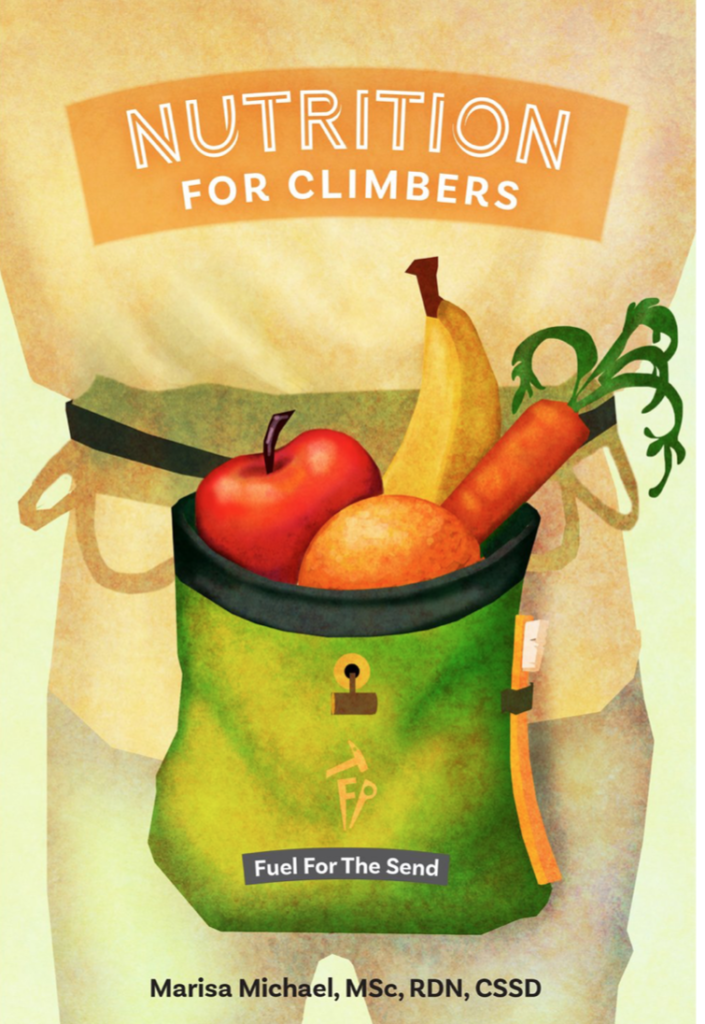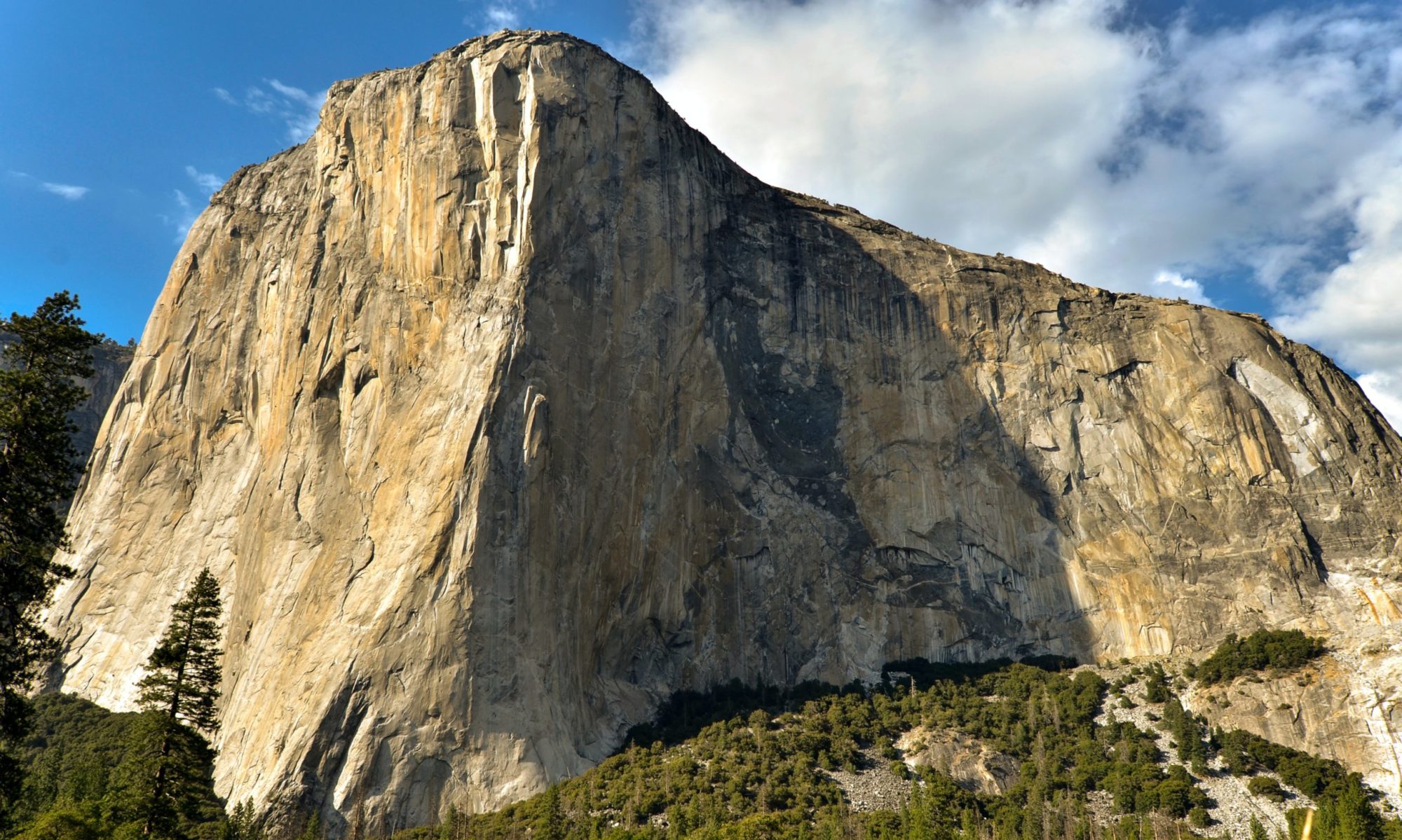
What one researcher thinks about climbing and eating disorders
Mattias Strand, MD, PhD, recently published the manuscript “Attitudes towards disordered eating in the rock climbing community: a digital ethnography.” As a dietitian that specializes in both climbing and eating disorders, this caught my attention. The climbing community has been talking about eating disorders recently, from the documentary Light to multiple stories from Climbing Magazine (Weighing in, Is lightweight the right weight? , thoughts about Light and more).
I’ve done a bit of research myself in adolescent climbers. And another researcher has found that up to 43% of female elite climbers are at high risk for disordered eating. So what does all this mean? How to climbers feel about it? Mattias Strand went to find out by scouring online forums. I asked him more about his research, and he was kind enough to answer my questions.
What made you interested in doing this research?
As a psychiatrist who worked primarily with eating disorders for quite a few years, I have seen a number of patients who developed serious eating disorders at least partly based on a wish to become lighter in order to climb harder. On the other hand, I have also met patients who used to overexercise in other sports and who have discovered a healthier way of relating to their own bodies through climbing. I thought this duality was fascinating and wanted to explore it further.
Also, as an amateur climber and father of a 12-year-old who climbs, I follow the international climbing scene and I cannot help but notice the perpetual debate about the role of weight in climbing. It seemed to me like there is a lot of talk about nutrition, weight, and body image in the climbing community, but that the topic of disordered eating is also often described as somewhat taboo – as a dark secret or as “the elephant in the room”, so to speak. I figured that a good way of exploring these potentially sensitive matters would be to study how people discuss them on online anonymous forums dedicated to climbing.
What was the most striking theme or comment you saw on these climbing online forums you studied?
Overall, the finding that was most striking to me was probably that the topic of eating disorders is far from a “blind spot” or an overlooked phenomenon among climbers, at least in these online communities. It may very well be that official climbing associations have not always taken eating disorders as seriously as they should have or that people do not necessarily talk about disordered eating at the crag or in the gym, but on the online forums that I studied there is certainly a lively and nuanced discussion about weight, disordered eating, and body image in relation to climbing.
Another thing that struck me is that forum users uniformly show support and even admiration for climbers who do not fit the stereotypically slender or athletic mold. Larger climbers would describe how they can often feel uncomfortable at the wall, and other forum users would always root for them and praise them for being courageous enough to climb anyway. Considering that fat stigma tends to discourage many people from exercising in public, it was good to see that forum users were generally very supportive in this regard. Of course, this may or may not reflect the actual atmosphere at the climbing gym. Also, I was surprised that there was not more discussion about race, body image, and climbing on the forums – if anything, I would say that an actual blind spot of the climbing community is probably “colorblindness” and inclusion of BIPoC climbers.
What is your perception of how the climbing community views eating disorders?
First of all, as a clinician with a special interest in eating disorders, I was glad to see that so many forum users had very sound advice to offer on this topic and that people were generally eager to help those who displayed a destructive relationship to food and weight. When it comes to the question of the impact of weight and weight loss on climbing performance, forum users are clearly divided. Many view a low body weight as an undeniable benefit in an antigravitational sport, but an equally large share of the posts that I analyzed emphasizes other skills – technique, power, psychological aspects, etc. – as far more important and point to negative effects of weight loss, such as fatigue and proneness to injury.
Interestingly, I noticed a certain ambivalence in many posts. For example, a comment may initally describe the effects of weight loss on performance as very marginal and highlight other climber qualities, only to conclude by “admitting” that, everything else being equal, this small gain may sometimes be what is needed in order to send. Clearly, even those forum users who downplay the importance of a low body weight do so in constant dialogue with the dominant idea of weight loss as beneficial. Those that point to other aspects as more impactful typically have to argue their position, while those that emphasize weight simply refer to “the laws of physics”.
What insights or ideas do you have to help the climbing community have a better relationship with food, body image, and climbing as a sport?
In my study, I found very few hands-on suggestions for how the climbing community ought to tackle disordered eating. This may not come as a surprise – eating disorders are complex phenomena and I think it is important to realize that there is no simple quick fix when it comes to disordered eating, among climbers as well as in other contexts. There are some signs that point to an overall healthier relationship with food and body image among climbers today compared to earlier decades. For example, many older forum users primarily associate eating disorders with the “Lycra crowd” of the 1980s and early 1990s and describe how a growing emphasis on moves that require a lot of power have diminished the focus on body weight over time. The establishment of climbing as an athletic discipline is also seen as promoting modern evidence-based approaches to training and nutrition and thereby reducing the reliance on outmoded ideas about dietary restriction as a key to success.
On the other hand, some worry that the very same tendency – the transformation of climbing from an experience-based outdoor activity into an achievement-based sport – may lead to an unhealthy focus on shortsighted tactics such as weight cycling. Not least, some forum users express concern about what is described as an emerging negative “soccer mom” culture in climbing, by which parents and coaches pressure young climbers to perform at the expense of their well-being. As climbing has become more and more popular, problems that are typically associated with the highly individualized gym and fitness culture at large, such as disordered eating, excessive exercise, and illicit performance-enhancing substances, risk becoming more prevalent in the climbing community as well.
Another thing – and I am not sure what it is like in other sports – is that the climbing community is still pretty tightly knit, and I guess it was even more so 10 or 20 years ago. You might be climbing at the same gym as some of the world-class elite climbers or you meet them at the crag at some point and there is a sense that you are somehow pretty close to the climbing “superstars” that you watch on the World Cup circuit. I suppose this is generally a good thing, but there are also numerous reminders in the online forums that the performance-boosting tactics that might be useful for a top-level V15 climber is not necessarily what you need to break into V6. This highlights the need for positive role models in climbing and the necessity of maintaining a realistic view on what is really helpful at the level you are at. This may sound as a cliché, but I think that the best advice that I can offer at this point is to simply encourage further discussion about eating disorders in the climbing community. I do not talk about this in detail in the paper, but it was evident that whenever famous climbers openly share their experiences with disordered eating or when there is a documentary such as LIGHT, this clearly helps forum users in sharing their own experiences and sparks fruitful discussions.
How long did it take you to conduct this research?
The forum posts that I analyzed covered approximately 20 years. They were downloaded over a period of 2 months, but I probably spent around 5 or 6 months in the online communities – in addition to assessing posts about eating, weight, and body image, I would also access a large number of forum threads concerned with other topics than those under study, in order to immerse myself more fully in the online communities and gain a better understanding of the whole spectrum of topics under discussion.
As a complement, other sources were also used in order to enrich the understanding of the study topic. For example, whenever a forum user made reference to a social media or blog post, a video clip, or a magazine article discussing disordered eating or body image concerns in the climbing community, I would read/watch it and consider how it related to the other collected data. These sources typically described top-level climbers’ own experiences of and thoughts on restrictive eating and body dissatisfaction; since these individuals can be considered public figures, I did not include their data in the formal analysis.
What would you like the climbing community to take away from your research? How could they use it to help?
I hope that it may in some sense be helpful to be aware of just how much weight talk there still is in the climbing community, but also to build on the many valuable experiences and insights offered by climbers who partake in online discussions. Again, one thing that I myself take away from this study is that most climbers – although certainly not all – that are active online appear to have a fairly nuanced and realistic view of nutrition, weight, and training. Whenever somebody seemed to be on a destructive path, there was always at least some other forum users who would provide balanced advice and try to point them in a healthier direction.
Clearly, there are many people that fall in love with climbing precisely because it emphasizes what your body can do rather than how it looks. Still others dismiss the idea of climbing as achievement-oriented altogether and point to elements such as having fun with friends and being close to nature. It is obvious that climbing can be a positive arena in combating body image issues and I can only hope that the climbing community will continue to embrace these values – after all, I think that this down-to-earth sensibility is what many of us appreciate about the climbing community, even if we sometimes obsess about grades or worry about plateauing.
Want more information? Check out our disordered eating resources page and our book, Nutrition for Climbers: Fuel for the Send.

